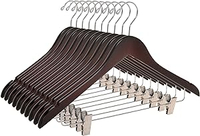Organizing trends that don't work – and what the experts use instead
These organizing trends may look good in pictures, but they are incredibly impractical for your home
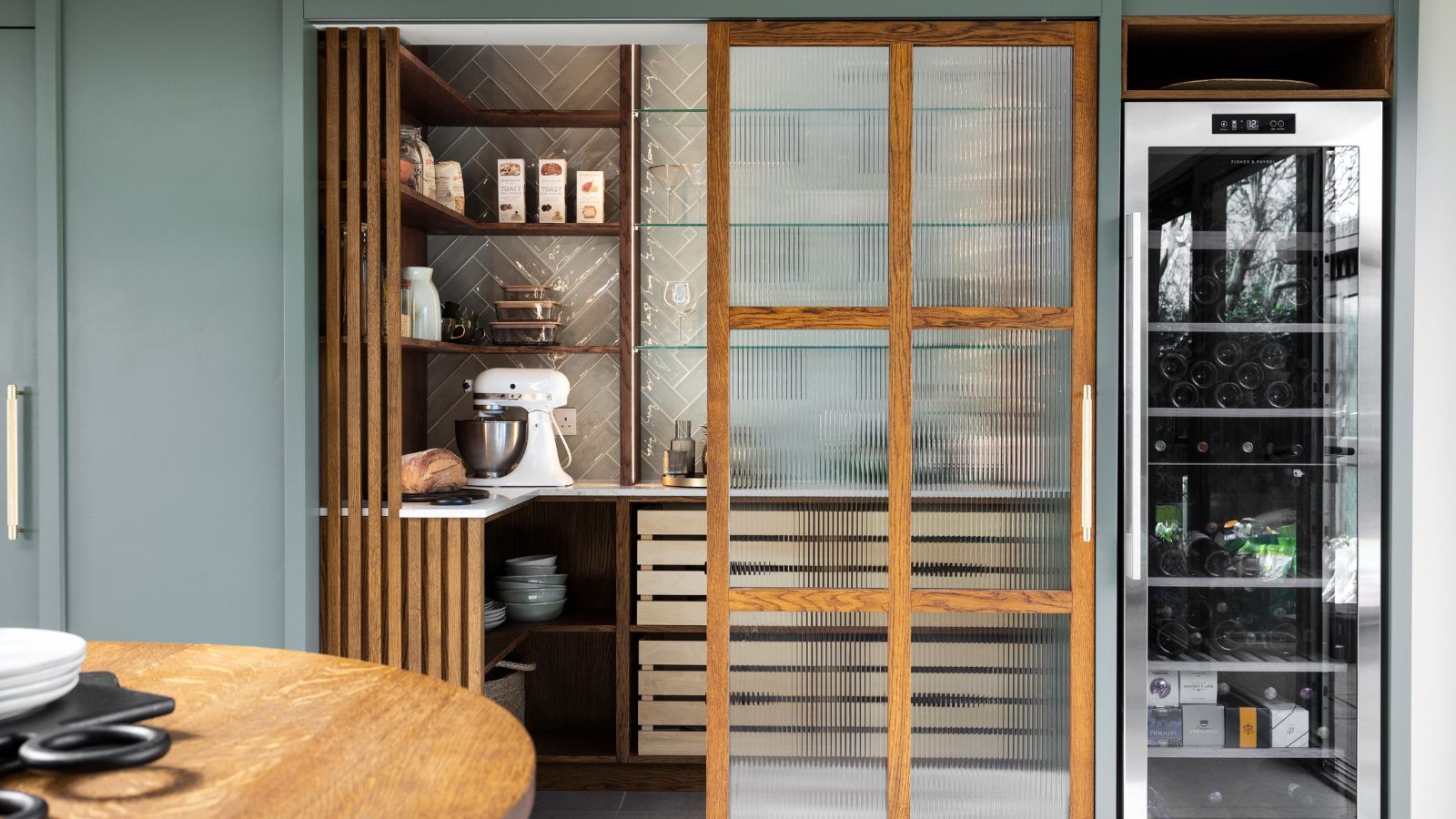

Our organizing habits are dictated massively by what we see online – but not everything translates well from a picture.
While using aesthetic organizing tricks can be a great way to make your home look good on the surface, several organizing trends don’t work and are impossible to maintain if you actually live in your home – even if they look Pinterest-perfect.
These are the four trends professional organizers want to stay in pictures, and the practical and sustainable alternatives they use instead.
Organizing trends that don't work
Taking inspiration from pictures of perfect home organization is not an inherently bad thing – it can help you find the motivation to clean, after all. It is important, however, to temper your expectations and remember that not everything works for every home. Experiment with different systems, and be okay with admitting that something doesn't work, rather than fight to keep your home looking good but not functional.
1. Decanting everything
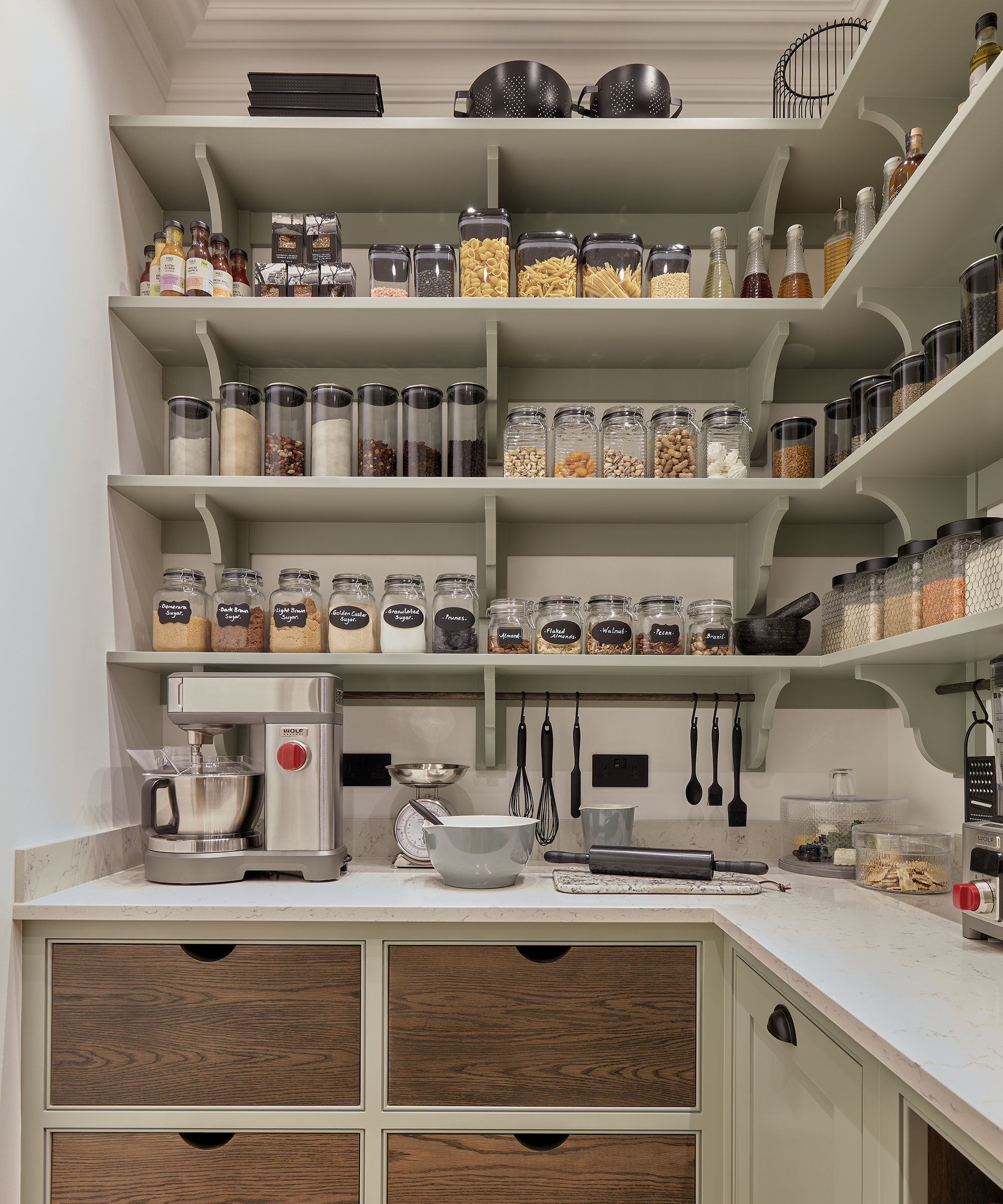
Decanting food goods can have a few benefits for your kitchen – from saving space by merging packaging to keeping food fresher for longer. But, it is not a one-size-fits-all solution, and can make organizing a kitchen much more tedious, says Ashley Murphy, professional organizer, CEO, and co-founder of NEAT Method. ‘Choosing to decant too much can quickly derail your system. Refilling canisters takes time so before selecting which items to decant, be sure you are willing and able to keep up with it,’ she urges.
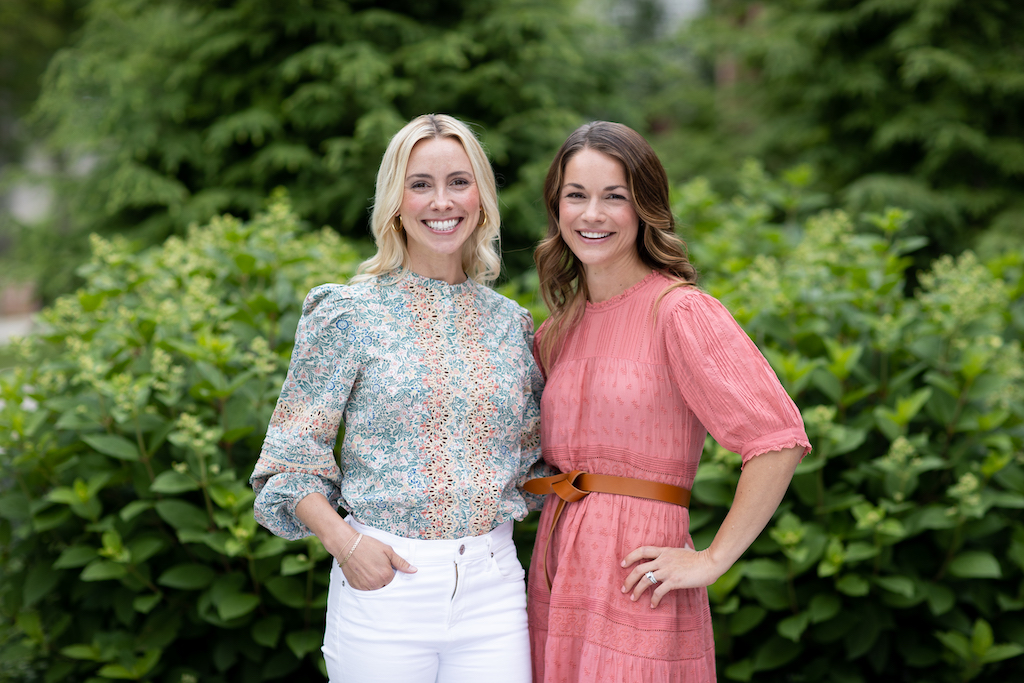
Ashley Murphy is one of the organization-obsessed co-founders behind NEAT Method. Started in 2010, NEAT Method is the result of the duo's inspiration to bring a fresh perspective to the industry. Murphy, the CEO, leads the team from localized markets to expanding across the US and Canada.
What’s more, decanting anything into containers can mean you lose valuable packet information, making your life much more difficult, points out Brenda Scott, professional organizer and owner of Tidy My Space:
‘The ingredients, best before date, contact info, and date of manufacturing are so very important to keep,’ she says. ‘When most people decant food, laundry products, and cleaning products, they lose that information. What happens if someone has an allergic reaction to a food item, a laundry detergent, or a cleaner? What happens if there's a product recall? Do you know if your product is involved? Would you know who to call? Would you know when and where it was made?
‘I would leave the items in their original packaging or if you really dislike the look of the box or bottle, then cut or copy the needed information off the packaging and keep it on the decant container. Having it attached to the container will save precious time in an emergency.’

Brenda Scott is passionate about home organizing, decluttering, and creating a safe home. At Tidy My Space, she helps people to keep their homes tidy when life gets busy. Brenda shares useful tips and gives practical help with sorting and editing her clients' spaces, leading them to feel less stressed and bringing the luxury of time to be spent with family, friends, or on themselves.
2. Ensuring everything’s uniform
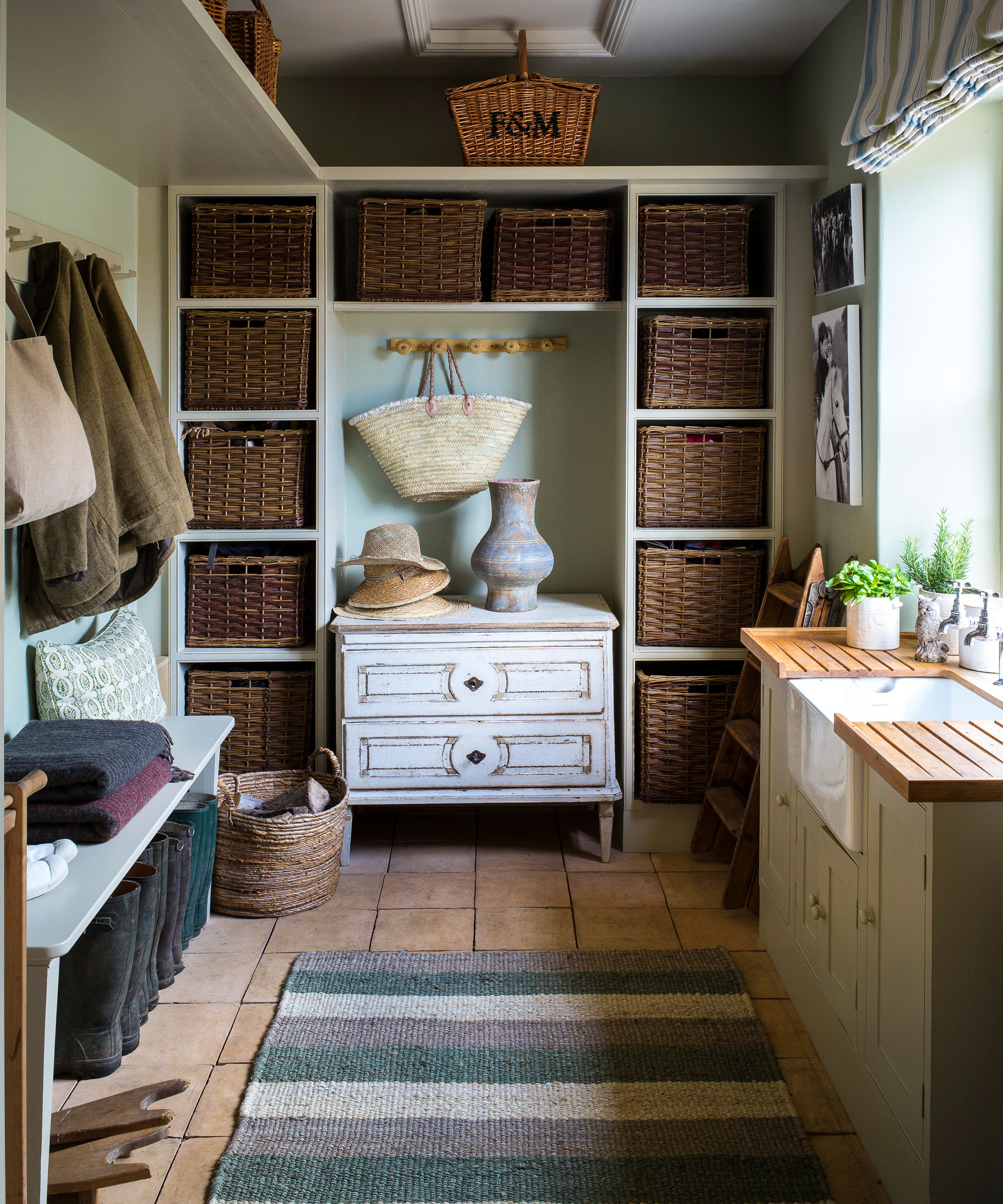
Keeping one system around your entire home looks great, especially when all of your storage baskets match. In reality, however, this one-size-fits-all approach is incredibly impractical.
‘Instead, I recommend tailoring organization strategies to fit each person's lifestyle,’ says Jackie Pittman, professional organizer and founder of Chez Nous Organizing. ‘Personalization is key – understanding your own habits and preferences goes a long way in creating a system that truly works for them. It's not about following trends blindly, but crafting solutions that stand the test of time.’
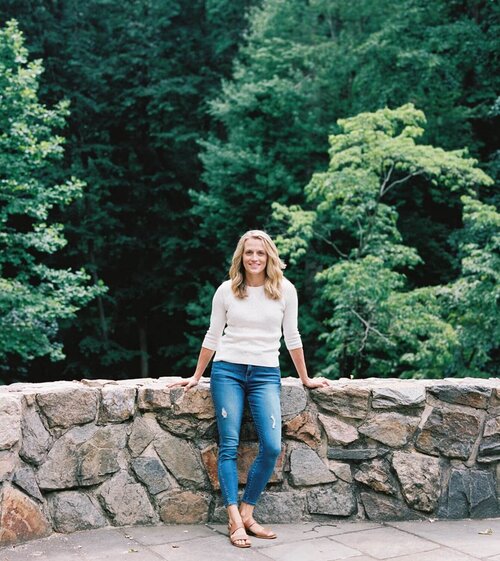
Jackie Pittman is the owner of Chez Nouz organizing, having started her business after making multiple cross county moves and becoming familiar with the process of cutting back belongings and organizing the essentials of everyday life.
3. Using custom drawer inserts
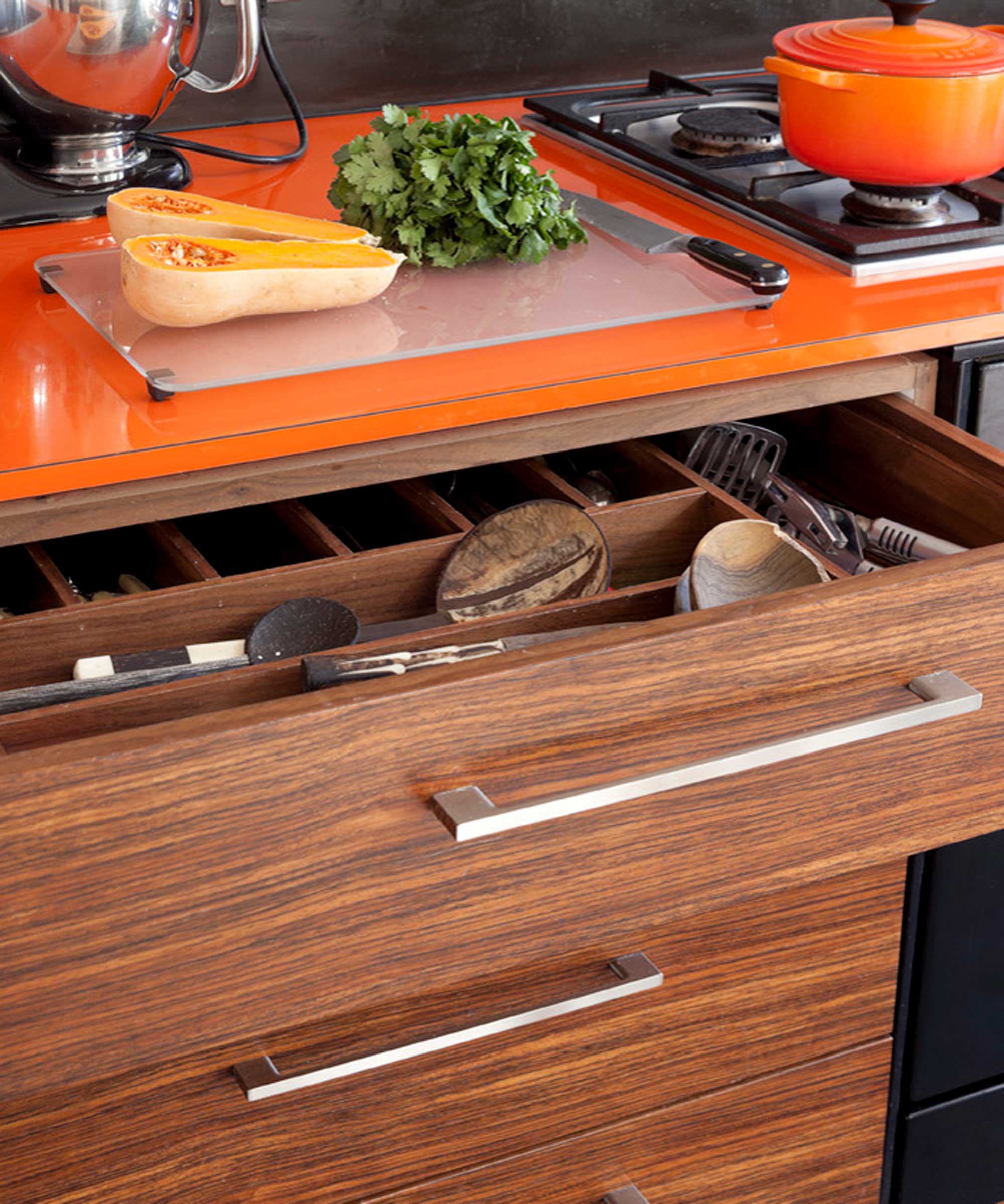
Organizing drawers almost always calls for inserts, but getting too detailed with your drawer organizers can quickly leave your system redundant – and difficult to maintain, reminds Ashley Murphy, professional organizer.
‘We love a custom organizing solution however, getting too custom can limit your ability to grow and transition in your space. Instead of splurging on a drawer insert specifically made for your current cooking tools, opt for individual organizers that can be changed and moved around over time.’
4. Velvet hangers

This may come as a shock given that velvet slimline hangers are some of the closet organizers professionals always buy, but just because they are popular and look good on a rail, doesn't mean they will work for everyone, shares Brenda Scott, professional organizer. For some, these hangers are too tricky to get clothes onto easily, making it difficult to maintain closet organization.
‘I can’t deny that, despite keeping the clothes from falling off, the material often gets caught and doesn't go on smoothly,’ she says, ‘and it's very difficult for anyone with hand dexterity issues. I appreciate that these hangers are thinner and take up less room on the rod but I prefer a thinner wire-coated hanger. Less space + less cost + less time hanging items = quick tidy of clothes.’
Wooden Hangers with Clips | View at Amazon
These sturdy wooden hangers with clips are ideal for keeping a closet uniform, clothes in shape, and outfits bundled together to save space.
5. Decluttering by numbers
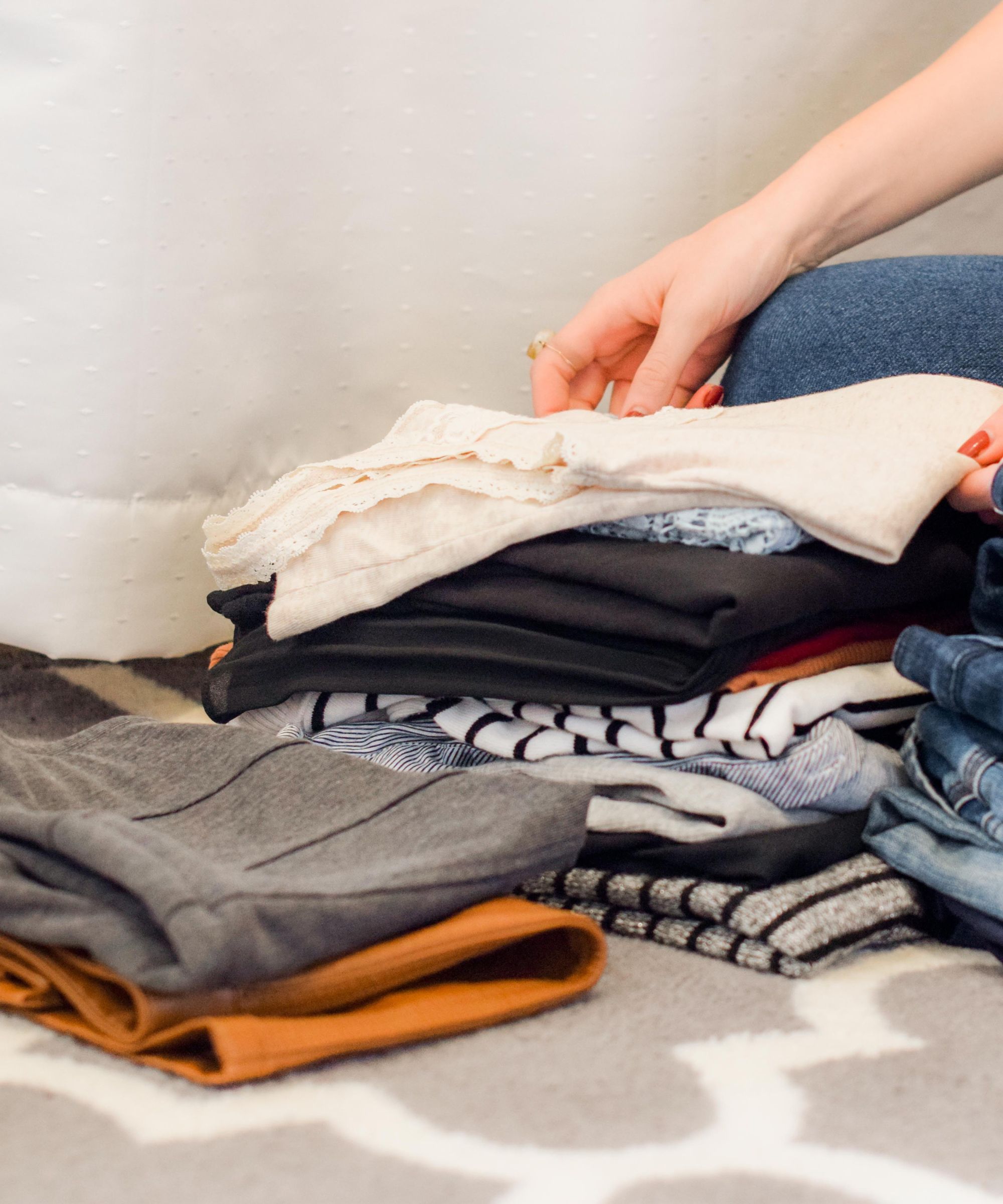
While we love a game to make decluttering more fun, some make decluttering more difficult than it needs to be, such as decluttering by numbers says Darla DeMorrow, professional organizer and founder of Heartwork Organizing:
'These methods don’t always work because they focus on getting rid of things, like tossing five things a day, or tossing everything that doesn’t bring you joy,' she explains. 'Our brains are hardwired to keep things we already own. It’s called the 'endowment theory', a term from behavioral economics that was studied by economist Richard Thaler and others.
'People who have a hard time making decisions, feel deep emotional connections with their things, or who lack strong motivation to get organized will feel defeated before they start with these by-the-numbers approaches that feel punitive.
'What works better is learning to make better purchases and acquisitions from the start. Putting off purchases until you need something, not just want it, and purchasing the best quality for longevity.'

Darla DeMorrow is a certified professional organizer, productivity expert, home stager, and author. Her company, HeartWork Organizing, based in Wayne, PA, offers seminars and training as well as hands-on work with residential and business clients.
FAQs
What not to do when organizing my home?
When organizing your home you should never skip on the decluttering process first. Decluttering will save you time and energy sorting items you no longer want or need. Similarly, you should never buy organizers such as containers until after you have decluttered. This is to prevent you from overbuying products you won’t end up using or spending money on organizers that do not work for the items you decide to keep, meaning it is harder to keep your home tidy in the long run.
Why does organizing take so long?
Organizing your home properly for the first time takes a while because you have to actively think of the best location for certain items and work out a way of storing them correctly. If you are still finding organizing your home tricky even after setting up a system, it might be that the system doesn’t work well for your personality or your household, and so an adjustment is needed. The idea of organizing is to make everyday life simpler, so don't fight against a system just because it looks nice or took a while to set up in the first place.
Along with the decluttering trends experts are relieved to leave behind, we will see decluttering and organizing take a more simplistic approach in the years to come, stripping it back to the basics for a focus on decluttering without getting overwhelmed. A win-win for both us and our homes.
Sign up to the Homes & Gardens newsletter
Design expertise in your inbox – from inspiring decorating ideas and beautiful celebrity homes to practical gardening advice and shopping round-ups.

Chiana has been at Homes & Gardens for two years and is our resident 'queen' of non-toxic living. She spends most of her time producing content for the Solved section of the website, helping readers get the most out of their homes through clever decluttering, cleaning, and tidying tips. She was named one of Fixr's top home improvement journalists in 2024.
-
 7 shrubs to plant in April to transform beds and borders – including native plants and bushes suitable for dry or wet spots
7 shrubs to plant in April to transform beds and borders – including native plants and bushes suitable for dry or wet spotsThese shrubs can bring flowers, texture, and fragrance, as well as attracting beneficial insects and birds
By Drew Swainston Published
-
 'The world will not end' – 5 cleaning habits to quit for a happier, easier life, and what to do instead
'The world will not end' – 5 cleaning habits to quit for a happier, easier life, and what to do insteadGet your home sparkling, minus the stress
By Ciéra Cree Published
